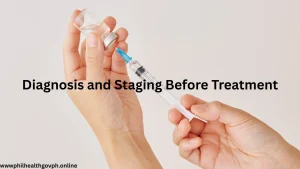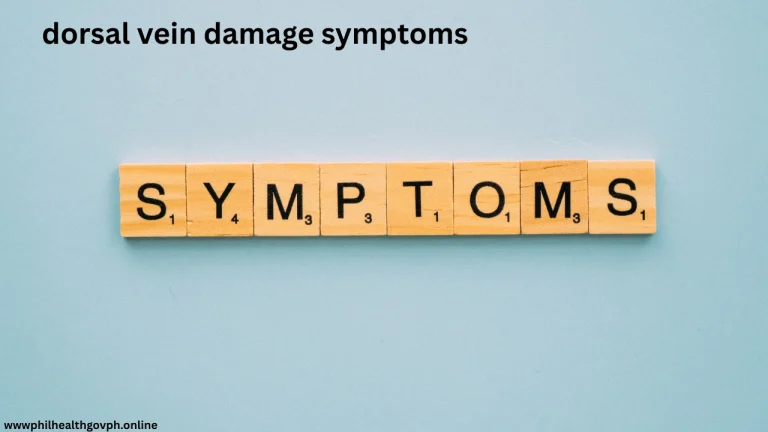Follicular Lymphoma Treatment: Options for Maintenance Therapy
Follicular lymphoma is a common type of non-Hodgkin lymphoma, known for its slow progression but complex treatment needs. Patients often feel uncertain about the choices available and the long-term outlook. That is why understanding follicular lymphoma treatment is essential for patients, families, and caregivers.
This guide explains every aspect of treatment in clear, simple language. From observation to advanced therapies like CAR T-cells, you’ll learn how doctors manage this disease and what patients can expect at each stage.
You May Like: aphogee protein treatment
What Is Follicular Lymphoma?
Follicular lymphoma is a cancer of B-lymphocytes, which are white blood cells that fight infections. The cancer usually develops in lymph nodes, bone marrow, or the spleen. It is considered an indolent, or slow-growing, lymphoma.
Unlike aggressive lymphomas that spread rapidly, follicular lymphoma often grows quietly for years. Some people discover it by accident during a medical exam, while others notice swollen lymph nodes in the neck, armpits, or groin.
Key symptoms may include:
-
Fatigue
-
Night sweats
-
Unexplained weight loss
-
Swelling in lymph nodes
-
Low fevers that come and go
Diagnosis and Staging Before Treatment

Before starting follicular lymphoma treatment, doctors must confirm the diagnosis and determine how far the disease has spread.
Diagnostic Tests Include:
-
Biopsy: Removal of a lymph node sample for microscopic analysis.
-
Blood tests: To check blood counts and organ function.
-
Imaging scans: CT, PET, or MRI scans to look for enlarged nodes and organ involvement.
-
Bone marrow biopsy: To see if the cancer has spread to the bone marrow.
Staging of Follicular Lymphoma:
-
Stage I: Limited to one lymph node region.
-
Stage II: Two or more areas on the same side of the diaphragm.
-
Stage III: Lymph nodes on both sides of the diaphragm are affected.
-
Stage IV: Widespread disease, including bone marrow or organs.
Staging helps guide treatment choices, from observation to aggressive therapies.
Follicular Lymphoma Treatment: Watchful Waiting
In early stages with no major symptoms, patients may not need immediate treatment. Doctors often recommend watchful waiting, also called active surveillance.
During this phase, patients have regular checkups, blood tests, and imaging scans. The goal is to monitor the disease until treatment becomes necessary.
This approach avoids unnecessary side effects while still keeping the cancer under close control. Many patients can live for years without needing chemotherapy or radiation.
Follicular Lymphoma Treatment: Radiation Therapy
Radiation is commonly used in stage I or localized stage II follicular lymphoma. High-energy beams target specific lymph nodes, destroying cancer cells in a controlled area.
Advantages of radiation include:
-
High remission rates in early stages
-
Non-invasive, outpatient procedure
-
Minimal long-term toxicity for localized cases
Radiation is less effective once the lymphoma has spread widely.
Follicular Lymphoma Treatment: Chemotherapy Options
Chemotherapy remains a central part of treatment when the disease progresses. Drugs such as bendamustine, cyclophosphamide, fludarabine, and doxorubicin are commonly used.
Doctors often give chemo in cycles to allow the body to recover between treatments. Side effects include fatigue, nausea, hair loss, and lowered immunity.
Combination therapy, where chemo is paired with targeted drugs like rituximab, provides better outcomes than chemotherapy alone.
Follicular Lymphoma Treatment: Immunotherapy
Immunotherapy has changed the way this cancer is managed. Drugs such as rituximab and obinutuzumab attach to cancerous B-cells, allowing the immune system to recognize and destroy them.
Benefits of immunotherapy include:
-
Longer remission periods
-
Fewer side effects compared to chemo
-
Can be used as maintenance therapy
Maintenance therapy means patients continue receiving infusions every few months for several years to prevent relapse.
Follicular Lymphoma Treatment: Targeted Therapy
Targeted therapies work by focusing on specific pathways cancer cells use to survive.
Common Targeted Drugs:
-
PI3K inhibitors (idelalisib, copanlisib): Block cancer cell growth.
-
Lenalidomide: Stimulates immune system activity.
-
EZH2 inhibitors: For patients with certain genetic mutations.
Targeted therapy is often used when standard treatments fail or when patients cannot tolerate chemotherapy.
Follicular Lymphoma Treatment: Stem Cell Transplant
For relapsed or aggressive cases, doctors may suggest a stem cell transplant.
-
Autologous transplant: Uses the patient’s own stem cells after high-dose chemotherapy.
-
Allogeneic transplant: Uses donor cells, which may provide stronger immune attack but higher risk.
Transplants carry risks like infection and graft-versus-host disease but can provide long-term remission.
Follicular Lymphoma Treatment: CAR T-Cell Therapy
One of the most exciting new treatments is CAR T-cell therapy. Doctors collect a patient’s T-cells, genetically modify them, and infuse them back to fight cancer.
This therapy is used for patients who have relapsed multiple times. It has shown high success rates, though it can cause strong side effects like cytokine release syndrome.
Managing Relapse and Refractory Follicular Lymphoma
Follicular lymphoma often returns after treatment. Doctors call this relapsed lymphoma. If the disease does not respond at all, it is refractory lymphoma.
Treatment choices for relapse include:
-
Switching to different chemotherapy drugs
-
Using newer targeted therapies
-
Enrolling in clinical trials for experimental drugs
-
Considering stem cell transplant or CAR T-cell therapy
Relapse management is a key part of long-term treatment planning.
Supportive Care During Follicular Lymphoma Treatment
Cancer treatment affects both the body and the mind. Supportive care helps patients manage side effects and improve quality of life.
Supportive Care Options:
-
Anti-nausea medication
-
Blood transfusions for anemia
-
Growth factors to boost white blood cells
-
Counseling and mental health support
-
Nutritional guidance for strength
This holistic care ensures patients stay strong during treatment.
Lifestyle and Self-Care During Treatment
Patients can improve outcomes by adopting healthy habits alongside treatment:
-
Eating a balanced diet rich in fruits and vegetables
-
Staying physically active with light exercise
-
Practicing stress management through meditation or yoga
-
Avoiding infections by washing hands and avoiding crowds
-
Getting adequate rest and sleep
These steps help the body recover faster and maintain overall health.
Prognosis and Survival
With modern therapies, the outlook for follicular lymphoma has improved. Many patients live 15 years or longer after diagnosis.
Prognostic Factors Include:
-
Age at diagnosis
-
Stage of the disease
-
Response to treatment
-
Overall health and other conditions
The Follicular Lymphoma International Prognostic Index (FLIPI) is often used to predict survival. It considers age, hemoglobin levels, number of affected nodes, and tumor size.
Research and Future of Follicular Lymphoma Treatment
Scientists are constantly developing new therapies. Clinical trials are testing drugs like bispecific antibodies, checkpoint inhibitors, and vaccines against lymphoma cells.
The future may see personalized treatment, where therapy is chosen based on the genetic profile of each patient’s cancer. This could make treatment more precise and effective.
Follicular Lymphoma Treatment: Patient Stories
Real-world stories highlight how treatment works. Some patients live symptom-free for years under watchful waiting. Others undergo multiple therapies but continue to live active lives. Many patients find support groups helpful to share experiences and reduce anxiety.
FAQs on Follicular Lymphoma Treatment
Q1: Can follicular lymphoma be cured?
While it is usually not considered curable, many patients live long lives with proper treatment and monitoring.
Q2: What is the most common first treatment?
Most patients start with chemotherapy combined with rituximab or other monoclonal antibodies.
Q3: How often does follicular lymphoma relapse?
Relapse is common, but patients often respond well to second-line treatments or clinical trials.
Q4: Is CAR T-cell therapy safe for all patients?
It is generally reserved for advanced cases because of high costs and potential strong side effects.
Conclusion
Follicular lymphoma is a slow-growing cancer that requires careful and personalized treatment. Options range from watchful waiting in early stages to advanced therapies like CAR T-cell therapy for relapsed disease.
The goal is not only to control cancer but also to provide patients with a high quality of life. With ongoing research and modern medicine, survival rates are better than ever.
Doctors, patients, and caregivers must work together to choose the right plan. No single treatment fits all, but with so many options available, there is always hope.
Follicular lymphoma treatment continues to evolve, offering improved outcomes and a brighter future for patients worldwide.






